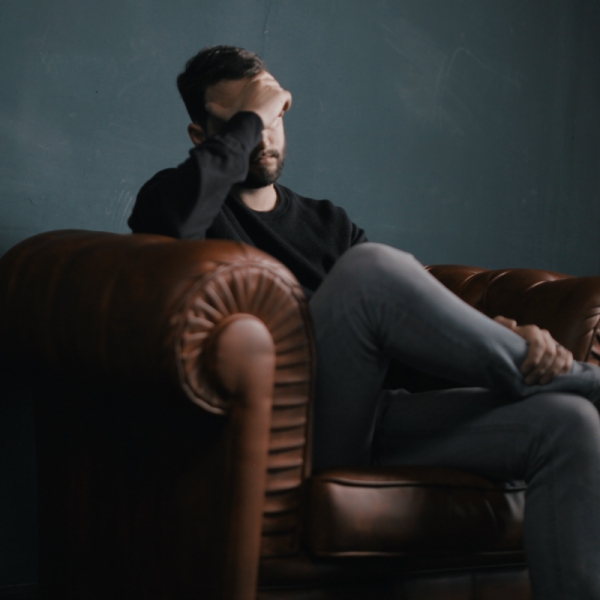Diagnosis doesn’t equate acceptance (as many of you well know). I certainly took my sweet time in accepting my conditions. Mental illness, particularly psychosis, wasn’t something I had been striving for in my 5-year life plan.
Below are questions and approaches my family, psychiatrist, other health professionals and my friends could have used to help me become more aware and more accepting of what I faced.
A caveat however. If someone is experiencing a psychosis or a severe lack of insight (anosognosia*) these suggestions may not be appropriate or at the very least will need to be adapted. For tips about how to communicate with someone in a psychosis these videos might be helpful. Though neither is a psychiatrist they have good information (suggestions start at 6 minutes 48 seconds). I don’t like his finger pointing (which you’d think he’d know isn’t a good way to communicate). Some advice and examples are a bit flip and graphic, but some information is excellent.
Another video to watch is: https://www.youtube.com/watch?v=_ss_CMUdH2U She makes an excellent point about being a ‘comforting force not a challenging force’.
Here are 10 strategies that could have helped me feel understood, empowered and more willing to investigate the treatment and help being offered:
1. I wish…someone asked me exactly why I didn’t want to accept the diagnosis. Why I didn’t want to take medication. When the reasons for resistance are shared, erroneous assumptions can be discussed, potentially corrected and new actions can take place*. E.G: I believed medication was a ‘cop-out’ and meant I was weak. I believed if I did enough therapy and got to the ‘root’ of the psychological reason I was depressed, I wouldn’t experience it anymore.
2. I wish…someone validated and empathized with me regarding my resistance to medication instead of trying to get me to see it their way. That doesn’t mean agreeing with me but it meant acknowledging my position. Arguing with me and telling me to take it only made me feel more misunderstood, and forced me more into myself.
3. I wish…someone validated and empathized with me regarding my resistance to medication instead of trying to get me to see it their way. That doesn’t mean agreeing with me but it meant acknowledging my position. Arguing with me and telling me to take it only made me feel more misunderstood, and forced me more into myself.
4. I wish…someone helped me understand the truth about mental illness, and showed me how to investigate those objections, allowing me to come to my own conclusions. That is, do some basic stigma busting with me.
5. I wish…someone asked me if I wanted to talk about my psychoses. Because I did want to talk about it. I wanted to, needed to make sense of it.
6. I wish…someone validated and explored with me the profound, life-changing spiritual elements of my psychosis. It’s important to note, not all aspects were negative and not all were meaningful. Instead, what happened was my insights and experiences were labelled as pathological and part of the illness, something to be discarded and forgotten. It wasn’t until I met my psychiatrist, Dr. Dillon, who discussed my experiences with neutrality, curiosity and compassion.
Questions like these would have helped:
- What did I learn?
- What was it like?
- What happened?
- What aspects did I want to talk about, but was afraid to? And why?
- What am I sad about? What did I lose? What do I need to grief?
- What am I afraid of, concerned with and how can it be addressed?
- What am I confused about?
7. I wish…someone could have helped me integrate a medical model with a spiritual perspective sooner and explained to me that it is possible to have both a spiritual experience and a mental illness; that one does not negate the other.
8. I wish…more people praised my scepticism; it meant I was deciding things on my own and the choices I made were intrinsically motivated.
9. I wish…someone informed me sooner the severe negative and anxious feelings I was experiencing could be part of a mood disorder not just a set of emotions and low self-esteem.
10. I wish…someone had explained cognitive therapy more clearly. When I was told my thinking creates my feelings, I felt I was being blamed for my depression.
Kay Jamison states in her book ‘An Unquiet Mind’ that we don’t know why some people walk through the door of acceptance or walk through it easily and others don’t. We also don’t know when people will do it. What I know for sure is, when we meet people where they’re at, when we’re curious and respectful, it helps people feel safe. People who feel safe are more willing to take risks and try things. That’s what happened for me at least.
© Victoria Maxwell
*NAMI defines anosognosia “when…someone is unaware of their own mental health condition or they can’t perceive their condition accurately”. Click here for information about it in the context of mental illness.





Leave a Reply
Want to join the discussion?Feel free to contribute!